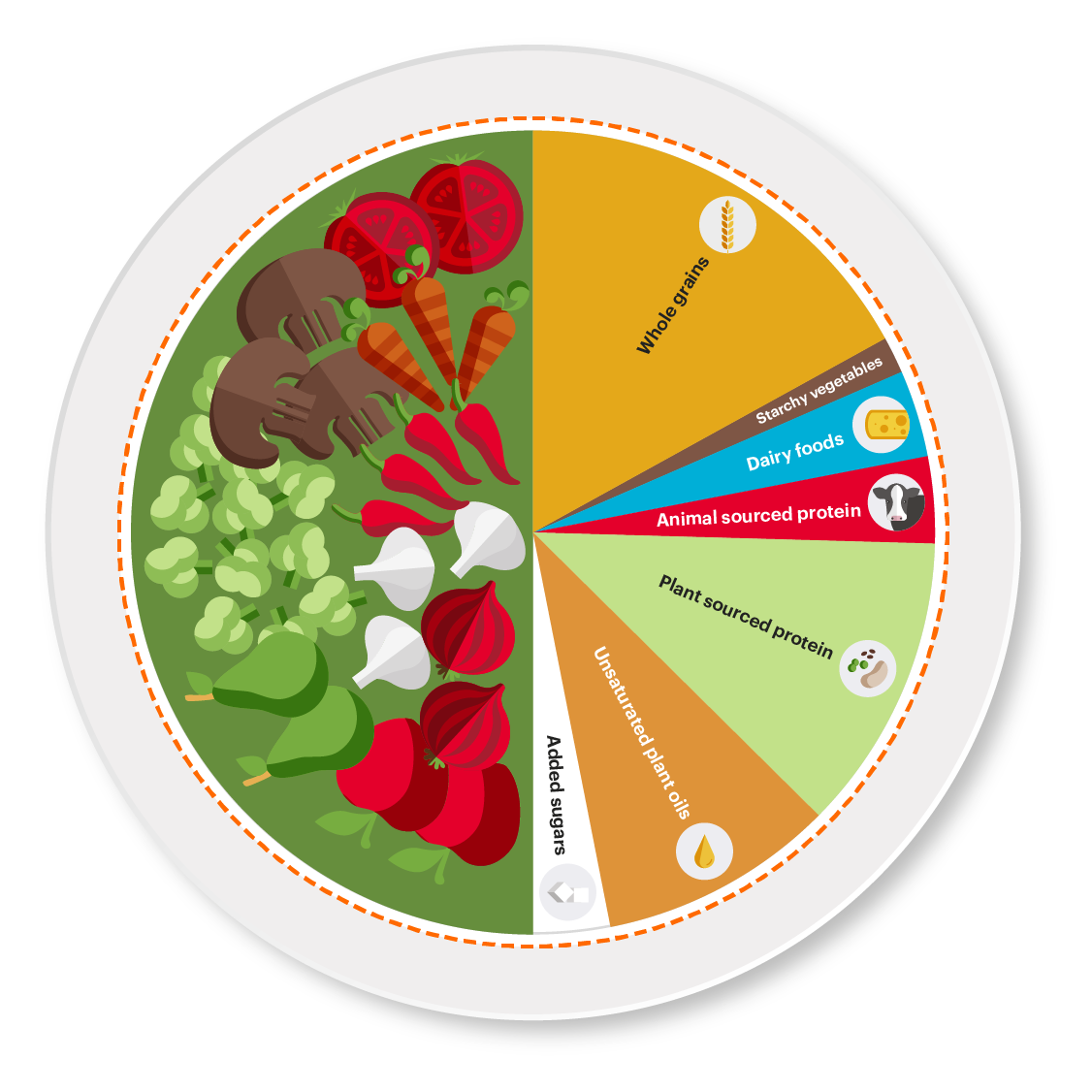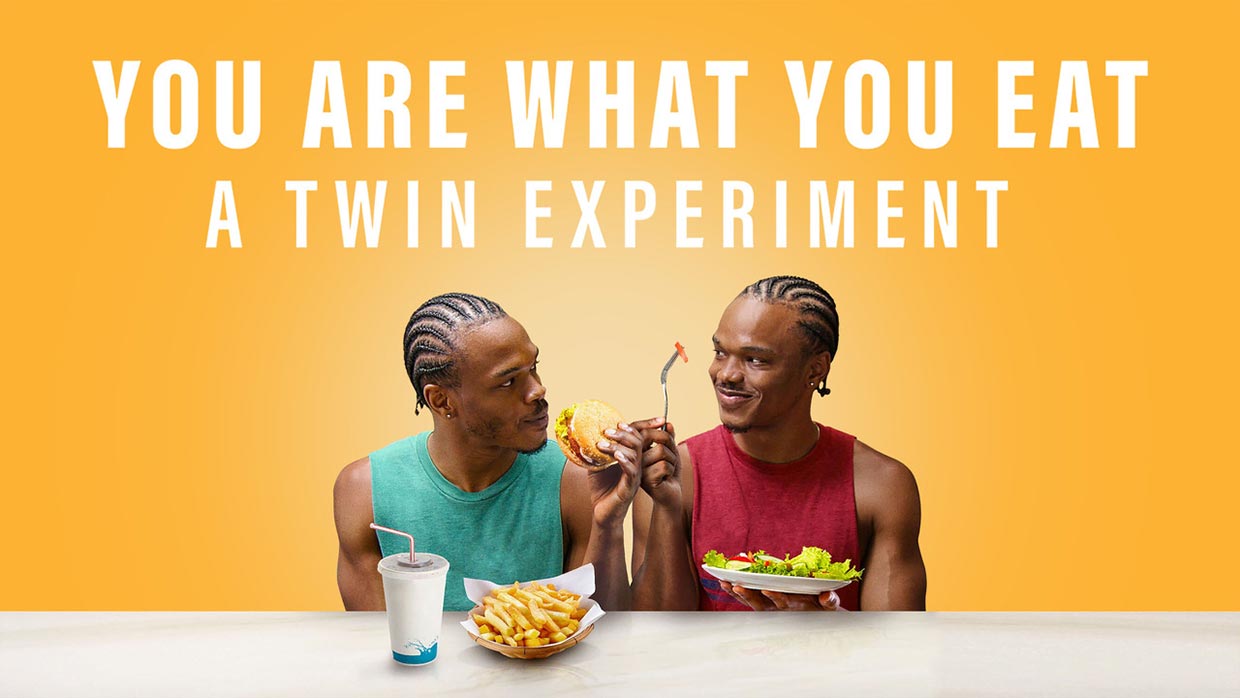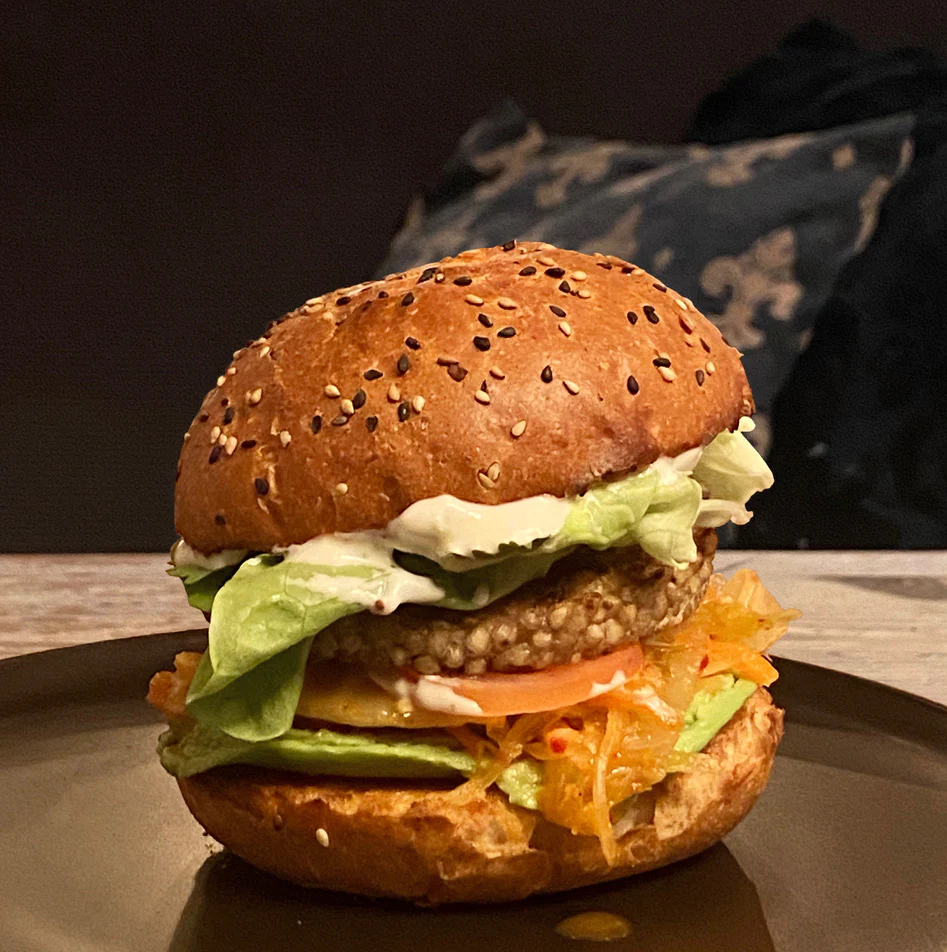While many studies indicate that a plant-based focus is better for both humans and the planet, many consumers still hesitate to say goodbye to their daily intake of meat or fish. Hybrid meat products, where a portion of the meat is replaced by plant-based ingredients, could assist in this protein shift.
Healthier according to government guidelines
Almost every country has established food guidelines and recommendations to help the population eat more healthy. These guidelines are based on numerous scientific studies and expert contributions. Many advise a varied diet, incorporating both vegetables and animal proteins. Some examples include:
-
The American dietary guidelines emphasize whole foods, or products with minimal or no added sugars, saturated fats, or salt. These include vegetables, fruits, whole grains, fish, eggs, legumes, unsalted nuts, seeds, dairy products, (unprocessed) meat, and poultry.
-
In the Netherlands, dietary guidelines are summarized in the Schijf van Vijf (wheel of five), which is partly based on the recommendations of the EAT-Lancet planetary diet. Here, the emphasis is on eating a varied diet with one or more products from each category every day. Also recommended is a diet consisting of approximately 30% fruits and vegetables and about 20% of meat and dairy products.
-
In China, a varied diet is emphasized, in addition to a healthy body weight. This is achieved, according to Chinese authorities, by drinking enough water daily, and paying attention to food safety and the nutritional information on labels.
-
In South Africa, the focus is on an active lifestyle. The government recommends consuming sufficient vegetables, beans, and fruit, along with daily consumption of animal products like milk, chicken, and eggs.
-
In 2023, Scandinavian and Baltic countries launched new dietary guidelines, the Nordic Nutrition Recommendations, advising a predominantly plant-based diet with plenty of vegetables, fruits, berries, legumes, potatoes, and whole grains. The guidelines suggest moderation with dairy products, red meat, processed meat, and poultry.
Healthy according to science
The EAT-Lancet planetary diet is a recommendation for mankind. 37 international scientists contributed to the development of the program. Through mathematical models, they created a menu that allows countries to feed 10 billion people by 2050, while also remaining within the Earth's planetary boundaries. EAT-Lancet is one of the few dietary recommendations that considers the ecological boundaries for global food production. The main message focuses on the need to consume fewer animal products and more plant-based foods, although there is still a role for animal proteins in this diet -including meat three times a week, and fish twice a week.

Netflix-series You are what you eat advocates for veganism
'You are what you eat: a twin experiment' is the latest hit on Netflix. In this study, 22 identical twins each follow their own diet for eight weeks to observe the impact of certain types of food on the body. During this time, one of the twins follows an omnivorous diet rich in animal-based ingredients, while the other consumes a 100% vegan diet. The conclusion of the series is that a plant-based diet is healthier than an animal-based diet.
Some outcomes of 'You are what you eat: a twin experiment':
-
The research shown in the series indicates that a plant-based diet can contribute to lower cholesterol levels. During the eight-week research period, the plant-based twins' LDL cholesterol significantly decreased, averaging 10%. The cholesterol levels of the meat eaters remained the same.
-
For the twins following a vegan diet, the amount of bifidobacteria in their intestines had increased after eight weeks while remaining unchanged for the omnivores. Such bacteria are part of a healthy microbiome and help prevent infections, leading to better metabolism and a stronger immune system.
-
Researchers differentiated between the biological age and calendar age of the participants in the experiment. The biological age refers to how old cells and tissues are, while the calendar age indicates how long you have been alive. After eight weeks, the vegan half of the twins was considered biologically younger than their omnivore twin halves.

A step in the right direction: hybrid meats
Despite numerous studies that indicate eating a (more) plant-based diet is healthier for humans and the climate, most consumers are not ready to completely give up meat and dairy. Many still do not view eating meat as a problem, despite numerous documentaries highlighting the deplorable conditions of animals in factory farming and the significant greenhouse gas emissions from this industry. A vegan approach is often seen as dull and a sacrifice. Many individuals also have an aversion to vegans. According to a Canadian study, only drug addicts evoke more aversion than vegans. The same study revealed that vegans receive many negative reactions due to their diet, while omnivores who don’t typically view meat alternatives as a viable option do not experience a backlash.
To encourage a shift to a plant-forward diet, more and more food producers are investing in hybrid solutions. In these possible solutions, part of the meat is replaced by a plant-based alternative, reducing CO2 emissions significantly, to 100% animal products. Hybrid options can be better for the environment, while still providing consumers with a traditional experience and taste.
Hybrid examples:
To increase the shift to plant-forward thinking, more and more food producers are investing in hybrid solutions. Five examples currently sold on the Dutch foodservice market include:
-
SNX makes hybrid deep fry snacks, in which part of the meat has been replaced by legumes and grains.
-
Meat-You-Halfway is the hybrid product line from food manufacturer Olijck. The meat is supplemented with vegetables like carrot and onion. Seaweed is also used, to give the ‘meat’ its unique binding and juiciness without a lot of additives. This is used to make hybrid hamburgers, meatballs, hot dogs and smoked sausages.
-
SelektMeat will soon launch a carpaccio variety in which 25% of the beef has been replaced by seaweed. The seaweed gives a spicy taste to the carpaccio and ensures that no salt is needed for seasoning.
-
Dutch topchef Robert Kranenborg recently launched his Kranenburger, a hybrid premium burger, with 50% beef and 50% mushrooms.
-
At the 2023 Food Inspiration Days, visitors were served a ‘hybrid’ slavink, a Dutch meat dish consisting of ground meat wrapped in bacon, which included replacing 25% of the meat product with beets.

